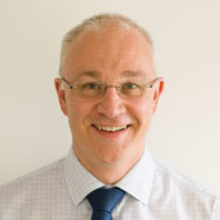From the Chief Executive
Issue: HIV and AIDS
06 November 2018 article

For the past five years, the Microbiology Society has shared its premises in London with a group of other Societies. If you have been to the AGM or a Committee meeting, you have probably bumped into colleagues from one of the other biological charities at Charles Darwin House or our second building, Charles Darwin House 2, which is just around the corner.
The trustees of the six co-owners recently decided that the time is right to sell these buildings and make new arrangements for our headquarters.
There are several reasons for the decision. Firstly, the complexity of joint ownership has proven very difficult and, critically, has affected the day-to-day running of the Society. As a charity, the Society has to follow relevant laws, and they can sometimes be complex, especially when more than one organisation is involved. Even the Law Commissioners, a group of very eminent and learned judges, barristers and solicitors, admit that they are not entirely sure what some of the legislation actually means! Ensuring that we stay on the right side of the rules is time consuming and can be expensive. At the same time, changes to business rates mean that it would be increasingly expensive to stay in the current buildings. Secondly, the buildings are worth quite a lot more than we paid for them, and when they are sold we will be able to plough that money back into activities that support the careers of you, the members of the Society.
Our aims are all about helping to unlock the power and potential of the unique depth and breadth of your knowledge and experience. The scale of opportunity is clear from the first sentence of the strategic plan: “microbes are everywhere and affect almost all aspects of our lives”. To match that ambition, we need a relentless focus on helping you to develop, expand and strengthen your networks, so that you share knowledge about microbes with one another and with other communities.
In pursuit of that goal, we collaborate with many organisations. There is no need to be in physical proximity with other organisations that we work with to be effective partners. Next year’s Annual Conference will include sessions held jointly with Protistology-UK and the Irish Fungal Society. Our policy work in antimicrobial resistance is given extra impact by our work with an organisation called LeSPAR, a collection of scientific membership bodies, including the Royal Society of Chemistry and the Biochemical Society. We had a successful joint collection of journal articles with the British Society for Immunology earlier in the year. What is important about these activities is not where the staff or the partners happen to have their desks, but how the work delivers benefits for our members. We will of course continue to cooperate with our friends in the other five Societies that currently cohabit at Charles Darwin House, but we will do so without the unnecessary distractions that co-ownership brings.
We are lucky to have welcoming, dedicated and professional staff working at the Microbiology Society. I know that many of you greatly appreciate us, because you are kind enough to let me know. We also enjoy working with you. Staff greet you at meetings, help you through the process of publishing in the journals, keep you informed about what’s going on, and support you in getting the most out of your membership. The decision to find our own bespoke offices will give us complete freedom to organise our working environment in ways that best support the staff of the Microbiology Society to deliver opportunities and benefits for you.
As always, one of the most obvious ways in which the Society’s staff support the microbiology community is through our Annual Conference, which next year will be in Belfast from 8–11 April. Giving a talk or presenting a poster is a great way to get your science the attention it deserves. The deadline for abstracts is 10 December, so you still have a few weeks to submit yours. I look forward to seeing what you are working on this year.
Peter Cotgreave
Chief Executive
[email protected]
